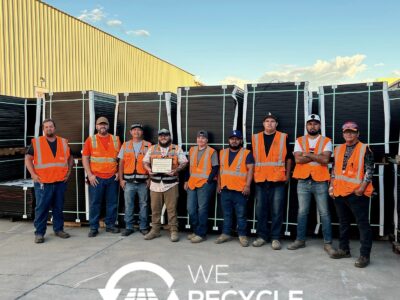The $1.2 trillion bipartisan infrastructure law came about thanks to efforts by South Carolina’s own Senator Lindsey Graham who, alongside 21 other Senators from both sides of the aisle, helped negotiate its main provisions. Their efforts resulted in funding which will support sweeping improvements and repairs to oft-neglected areas of need across the nation.
Areas in need of investments in South Carolina and throughout the U.S. are included in many of the conventional categorizations of “infrastructure”, like roads, highways, bridges, and public transportation. However, as national infrastructure hasn’t seriously been addressed on a federal level since the days of Ronald Reagan, that categorization was subject to change. The new 21st-century infrastructure umbrella also includes things like nationwide broadband internet, electric vehicle charging stations, and a more significant emphasis on weatherization funding due to an anticipated greater frequency of extreme storms and natural disasters. While it had been argued that certain elements of the larger $2 trillion-plus proposed bill earlier this year – elements like affordable housing funding, or grants for elderly care – were unrelated to the purpose of the legislation, it is tough to argue that internet access is anything but essential to community operations and daily life in 2022.
The investment in South Carolina will be worth billions. The vast majority of federal funding will go to much-needed repairs to the state’s roads and bridges, to the tune of $4.8 billion. This injection comes to a state with 1,702 bridges and over 7,000 miles of road classified as in poor condition. The impact of the repairs will be immediately felt by all South Carolinians. Since 2011, commute times have increased by over 7 percent in the state due to diminished road quality, leading to over $600 annually in additional car repair costs. Additionally, the state is eligible to compete for funds available in the federal Bridge Investment Program, which holds an additional $12.5 billion that will be doled out as needed.
South Carolina will also be able to take advantage of a $5 billion national fund for improving public transit infrastructure, which could curb emissions by reducing the amount of individual cars on the road. An estimated 20 percent of public transport vehicles are classified as “past useful life” in South Carolina, and additional investment could greatly cut down on commute times for state residents who primarily rely on public transportation.
Further transportation investments include the $70 million grant to build out a network of electric vehicle charging stations within South Carolina. As the nation works towards becoming carbon neutral by the year 2050, we will soon see a large-scale phasing out of gasoline-powered vehicles for the everyday American. Electric alternatives will become the primary replacement option as they become more and more affordable. Finally, a total of $100 million is being allocated to expanding the statewide broadband network as part of a larger effort to address the digital divide throughout the country.
Sen. Graham, one of the Republican senators to vote in favor of the bill, took to social media to share his support. Graham said it “provides much-needed help for our roads, bridges, ports, and expands broadband internet access.” The senator was particularly excited about the inclusion of two of his cosponsored bills– the DRIVE-Safe Act, which will “help develop the next generation of American truck drivers,” and the Buy American provision, which incentivizes American materials producers and will help make it easier for South Carolina’s businesses to apply for government contracts. “This bill provides American infrastructure with a much-needed facelift,” wrote Graham in a string of tweets.
Updated May 2nd 2022





